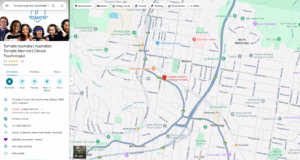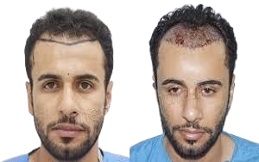Short Answer
If your child struggles to communicate, has difficulty pronouncing words clearly, or is behind peers in language development, it may be time to consider professional support. Signs include limited vocabulary, stuttering, delayed speech milestones, and frustration when trying to communicate. Seeking early guidance from professionals offering speech therapy in Australia can make a significant difference in your child’s communication skills and confidence.
Understanding Speech and Language Development
Speech and language development varies from child to child, but there are general milestones most kids reach within certain age ranges. For example, by age two, many children can put together two-word phrases like “want toy” or “go park.” By age three, sentences are usually longer and vocabulary is broader.
When children struggle to meet these benchmarks, it may be more than just “late talking.” In some cases, it could indicate a communication disorder that requires intervention through professional services such as speech therapy in Australia.
Common Signs That a Child May Need Speech Therapy
1. Delayed Speech Milestones
One of the most noticeable signs is when a child does not meet expected milestones. If your child is:
- Not babbling by around 12 months,
- Not saying simple words like “mama” or “dada” by 18 months, or
- Not using short sentences by three years,
these may be indicators that support is needed.
2. Difficulty Pronouncing Words
If a child consistently struggles with sounds that most kids their age can manage, it might be a red flag. For instance, if a five-year-old still cannot pronounce sounds like “p,” “b,” or “m” clearly, they may need assessment.
3. Limited Vocabulary
A smaller-than-average vocabulary for their age can impact not only communication but also confidence and learning at school. Children with limited words may become frustrated when others cannot understand them.
4. Stuttering or Repetition
Stuttering, where words are repeated or drawn out, can sometimes resolve naturally. However, persistent stuttering that causes distress, or worsens with age, should be checked by a professional.
5. Difficulty Following Instructions
If your child has trouble understanding or remembering simple directions like “pick up the ball” or “bring me your shoes,” it may indicate a language processing issue rather than just inattention.
6. Social and Emotional Frustration
Communication challenges can affect more than speech—they often lead to frustration, withdrawal, or behavioural changes. If your child avoids social situations because they find it hard to communicate, it may be time to seek support.
When to Seek Professional Support
Early intervention is key. Professionals can assess whether a child’s challenges are part of normal development or signs of a condition requiring support. Parents should consider seeking guidance if:
- Concerns have persisted for more than six months,
- A child is significantly behind peers in communication skills, or
- Teachers, childcare workers, or family members have raised concerns.
Many families in Australia find value in consulting with specialists who understand both developmental milestones and speech-related conditions.
How Speech Therapy in Australia Helps Children
Speech therapy provides structured, supportive sessions tailored to each child’s needs. Depending on the assessment, sessions may focus on:
- Improving articulation and clarity,
- Expanding vocabulary and sentence structure,
- Strengthening listening and comprehension skills,
- Building confidence in communication through play-based activities.
These sessions are not only about correcting speech but also about supporting overall communication and helping children thrive at home, in school, and socially.
Families can also explore resources from trusted organisations such as Raising Children Network, which provides guidance on child development and communication milestones.
Questions Parents Often Ask
- How early can speech therapy start for a child?
Some children benefit from support as early as 18 months, especially if they show noticeable delays.
- Can a child outgrow speech delays without therapy?
While some children catch up naturally, ongoing delays may persist without targeted intervention.
- How long does speech therapy usually take?
The duration varies based on the child’s needs. Some may require only a few months, while others may benefit from longer-term support.
- Is speech therapy only about talking?
No, it also includes listening, understanding, non-verbal communication, and social interaction skills.
- Can parents support speech development at home?
Yes, parents play a vital role. Reading aloud, singing songs, and engaging in conversations daily can reinforce progress.
- Is speech therapy covered under the NDIS?
Yes, in many cases, families can access speech therapy through the National Disability Insurance Scheme (NDIS).
- Should I be concerned if my bilingual child speaks later than others?
Bilingual kids may take longer to develop both languages, but if delays are significant, assessment is still recommended.
- Does speech therapy help with stuttering?
Yes, early intervention for stuttering often leads to better outcomes.
- How do schools in Australia support children with speech difficulties?
Schools often collaborate with professionals and provide tailored support programs.
- What if my child refuses to participate in speech sessions?
Many professionals use play-based, engaging activities to encourage participation, making therapy feel fun rather than clinical.
Final Thought
Recognising the signs early is the best way to ensure your child gets the support they need. Whether it’s delayed speech, limited vocabulary, or social frustration, timely guidance can make all the difference. Professional speech therapy in Australia provides tailored strategies to help children build strong communication skills and grow with confidence.
Tomatis® Method Australia
41, Suite 2/ Level 1/44 Pacific Hwy,
Waitara NSW 2077
1300 233 572





